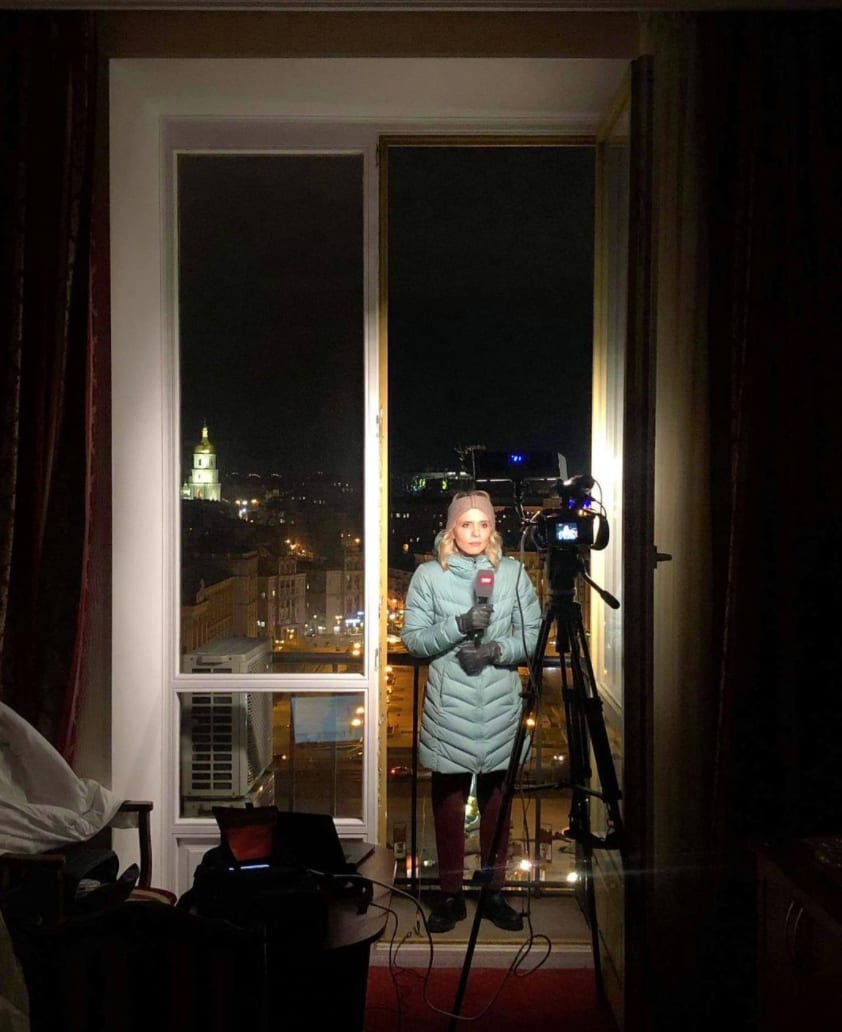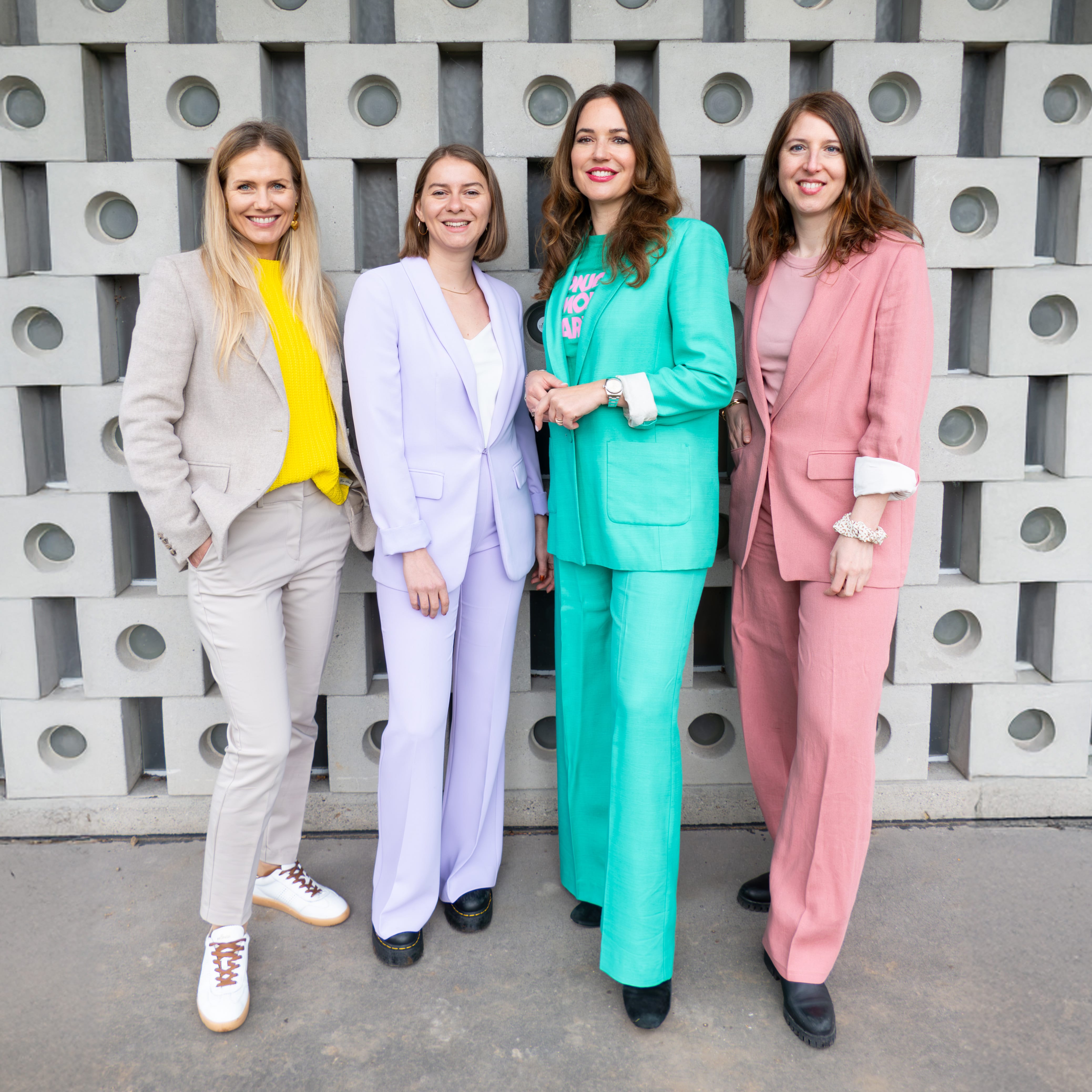When a war breaks out we rely on the news to keep us updated on what's happening on the ground.
The job of bringing updates is difficult and dangerous. Journalists risk their lives in a conflict zone where information is hard to verify, the unfolding scene is steeped in tragedy and trauma, and any moment could turn deadly.
Old thinking would say “it’s not a job for a woman”. And yet today, fearless female journalists all over the world join their male colleagues, reporting from the frontlines. By doing their jobs, they diversify our informational landscape, telling stories with a female lens, stories with a female voice. They show that women too are tough storytellers. They ensure war reporting doesn’t just have a male face.
In this article, we want to spotlight several female journalists whose careers brought them to war zones across the world, including the current unfolding crisis in Ukraine. Follow their stories below.
Lyse Doucet, BBC Chief International Correspondent
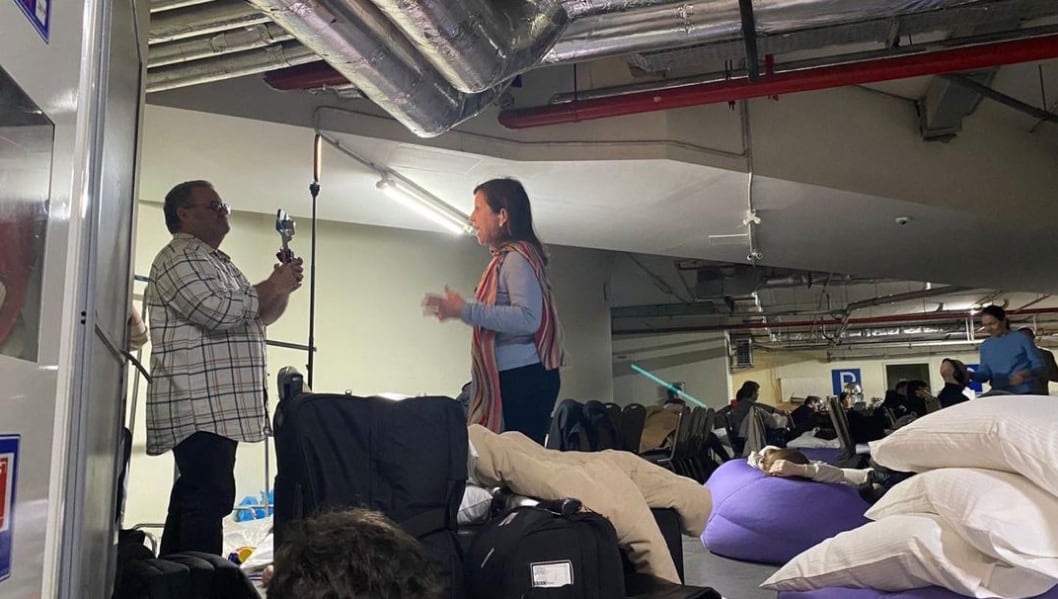
Canadian-born Lyse Doucet has been covering conflicts in some of the toughest war zones for several decades, reporting from Afghanistan, Syria, and Yemen amongst others.
A multi-award-winning journalist, Doucet was most recently recognized with the 2022 Shifa Gardi Award that highlights the talent of female journalists on the frontline, bravely covering and bearing witness to realities that often go unreported.
Doucet is known for her courage, professionalism, and compassionate but stoic attitude. “Empathy is a good thing. But viewers don’t want to see me, or anyone falling apart. It is not about us.” she told the Guardian in 2014.
Her bio reads that her country is Canada, her city is London, but Doucet has made an exceptional career traveling to the most dangerous areas in the world. She is currently in Kyiv, reporting for BBC World News, where she had to put on a bulletproof vest during a live broadcast as warning sirens began to sound in the city.
Follow her detailed coverage on BBC World News and Twitter.
Olga Tokariuk, an independent journalist in Ukraine
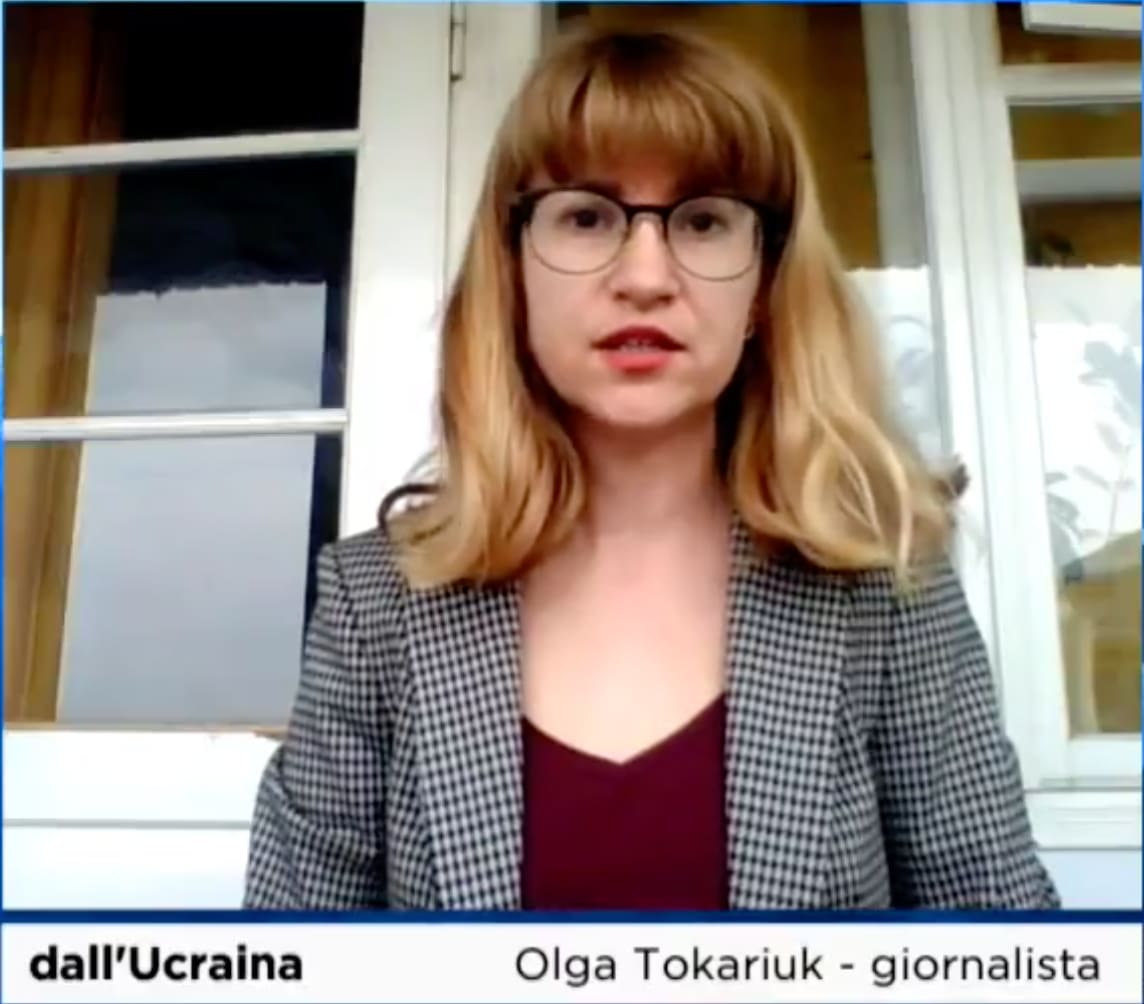
Olga Tokariuk is a non-resident Fellow at the Center for European Policy Analysis (CEPA) and an independent journalist and researcher based in Kiyv.
She writes about Ukrainian politics, international affairs, and the impact of disinformation on democracies worldwide. In a recent op-ed for the Washington Post, she described her life in Ukraine, from childhood until today, witnessing conflict after conflict shape her country and identity.
“We might have regarded independence as a gift when we were children, but later in life, we realized that it was not just given to us; we had to protect it with our lives”.
As she witnesses yet another crisis befall her home, she provides commentary on foreign news programs such as CNN and tweets live updates on her account: a brave, honest first-hand commentary from a journalist whose country is at war.
“I am confident Ukraine will win this war,” she said, “the only question is what would be the human cost of its victory…”. (Source: Olga Tokariuk/Twitter)
Follow Olga Tokariuk's stories and updates here.
Luzia Tschirky, SRF correspondent for Russia
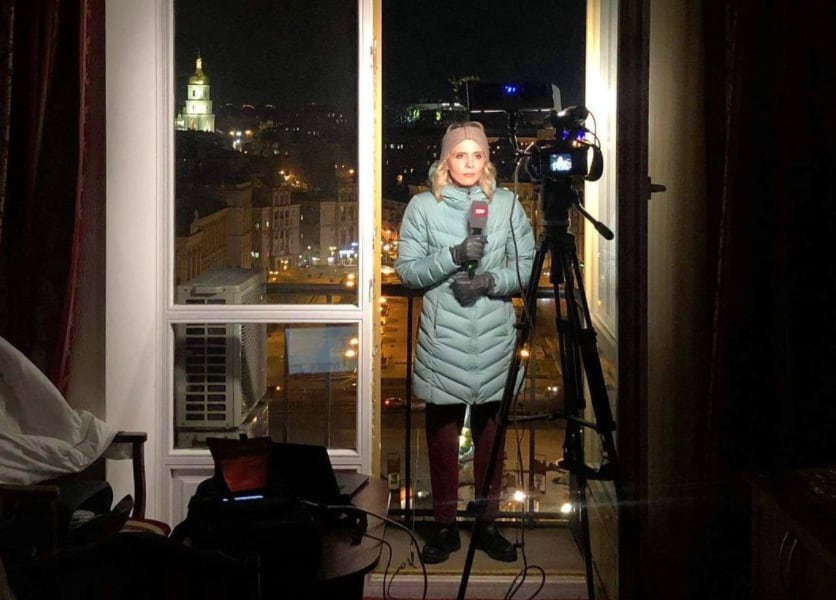
At 28, Swiss journalist Luiza Tschirky became the Russian correspondent for SRF (Swiss Radio and Television). At 31, she was abducted by masked agents in Belarus while reporting on the protests in the capital Minsk. Later that year, the industry voted her Swiss “Journalist of the Year”.
She hasn’t stopped since. In the past few days, the 32-year old has been covering the war in Ukraine from the frontlines. She was first seen wearing her bright blue jacket with the night Kiyv skyline behind her. In later broadcasts, on top of her jacket was a bulletproof vest.
“Dark times” she captioned the situation on her Instagram post. Follow her coverage on SRF and her Twitter account.
As of the time of this article, Tschirky made a safe escape out of Ukraine into Poland.
Sarah Rainsford, BBC Eastern Europe correspondent
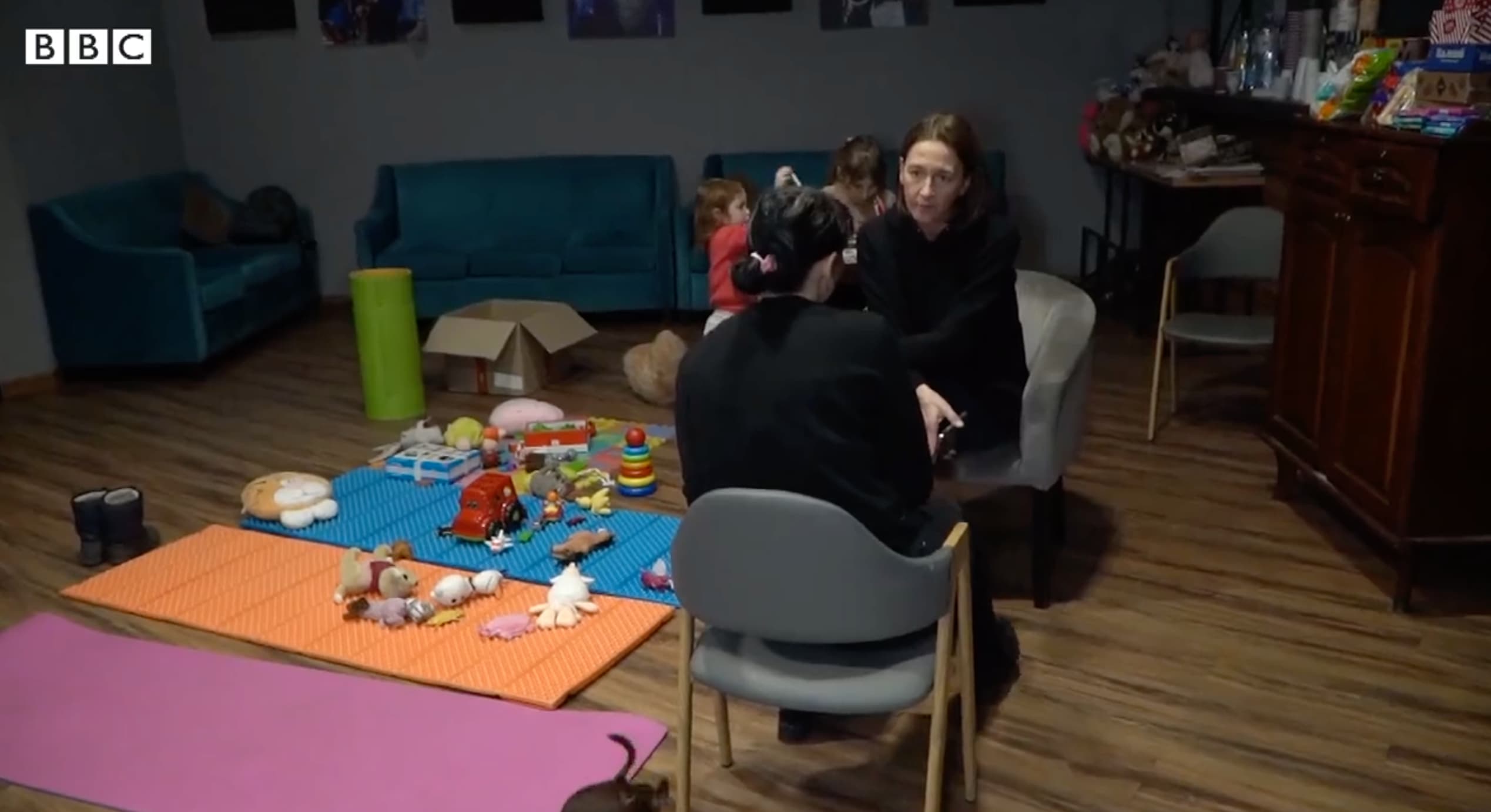
British journalist Sarah Rainsford has been working for BBC since 1999, reporting from Russia, Spain, Turkey, Cuba, Afghanistan, and Iraq.
In 2021, after more than 20 years of reporting from Moscow, Rainsford was expelled from Russia in a wave of Kremlin pressuring journalists and silencing critical voices in the country. She was given three weeks to pack up her life and leave the country. “I’ve been told I can’t come back - ever,” she wrote in her last dispatch from the city she used to call home.
Today she still reports on Russia - from afar. As the country invades Ukraine, she finds herself watching from the frontlines in Dnipro, a city in Eastern Ukraine.
In one of her latest Twitter posts she writes: “In Dnipro, just as we were talking to people who’ve fled the fighting further east, the siren went off in this city fo the first time. People here are amazingly strong, but many have already been forced to rebuild their lives twice in this 8-year war. And now this”.
Follow Sarah Rainsford's stories and live updates on Twitter.
Nataliya Gumenyuk, Independent Ukrainian War Reporter
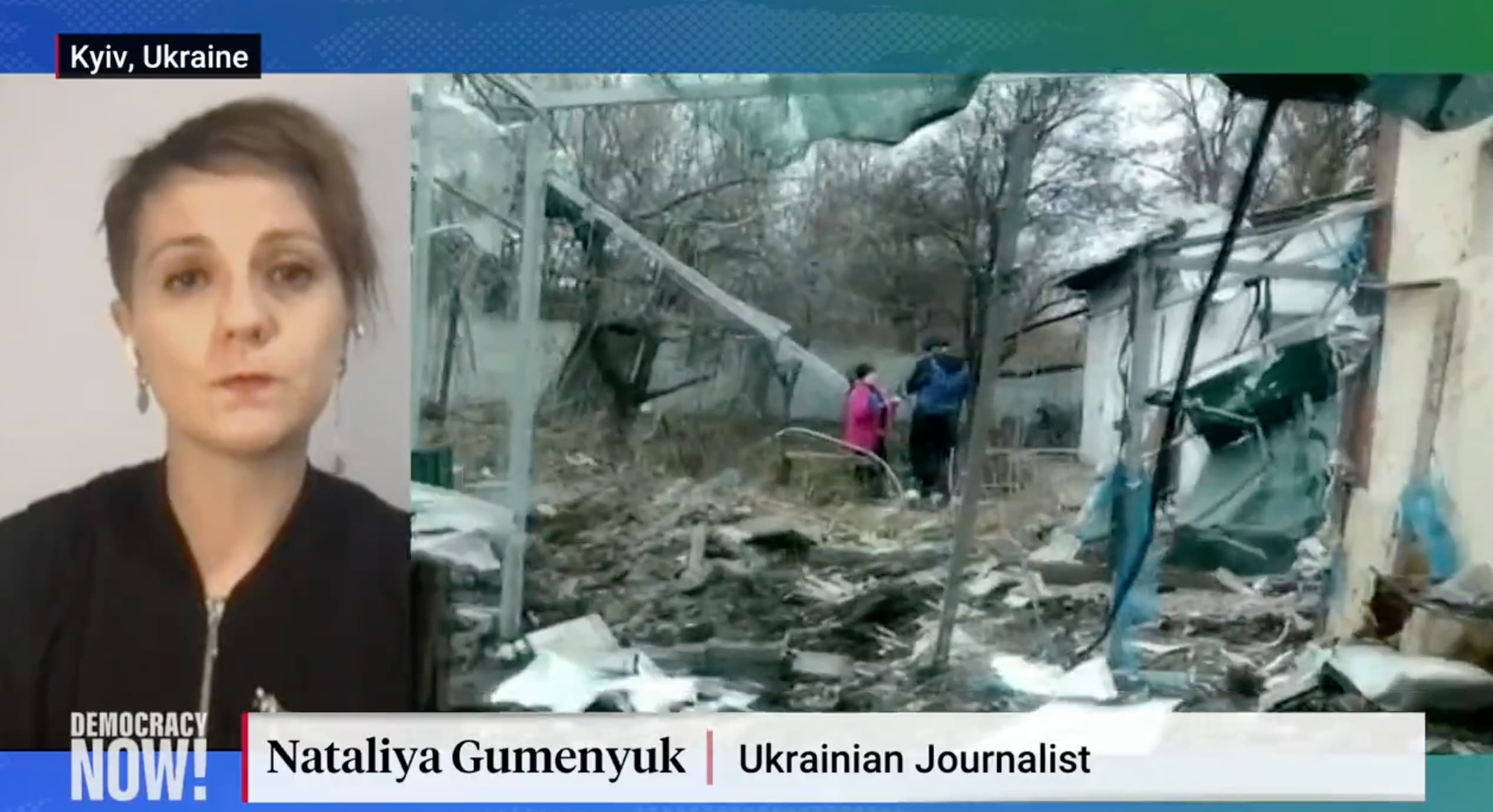
Kyiv-based Natalyia Gumenyk, 38, is a Ukrainian journalist, author, researcher, and documentary filmmaker. Together with a fellow journalist Angelina Kariakina, she founded the Public Interest Journalism Lab - an interdisciplinary coalition for better journalism in the digital age.
From 2015 to 2020 Gumenuyk headed the independent Ukrainian broadcaster Hromadske TV and the English-language Hromadske International Project. Her recent book, The Lost Island. Tales from Occupied Crimea (2020), features her six-year reporting from Russian-annexed Crimea.
As a journalist, Gumenyuk specializes in foreign affairs and conflict reporting, writing for international media such as The Washington Post and the GuardianShe has reported on major political and social events from nearly 60 countries.
Read her first-hand account of the beginning of the war in Ukraine - “I’m in Kyiv and awake as the darkest hour - as Putin’s bombs rain down”.
Clarissa Ward, Chief International Correspondent for CNN
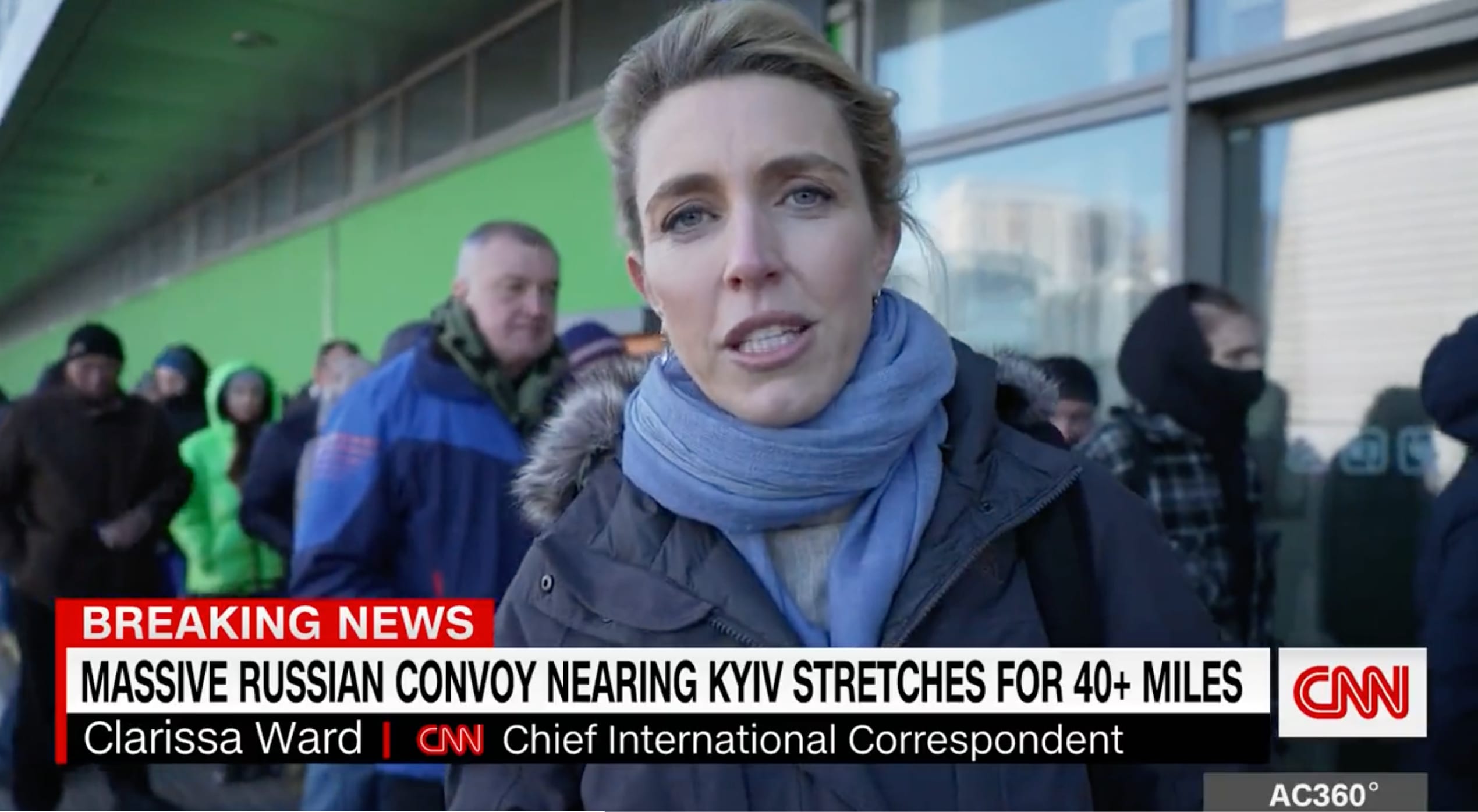
British-American television journalist Clarissa Ward has worked for CBS News in London and was a Moscow-based news correspondent for ABC News before her current role at CNN.
In 2012, when she was only 32 years old, having already covered many international conflicts in her career, she received the George Foster Peabody Award for her journalistic coverage inside Syria during the Syrian uprising.
Ward is fluent in English, French, and Italian, and speaks conversational Russian, Arabic, and Spanish. In 2020, she wrote an article for Glamour discussing her resolve to continue doing her job as she parents two young children even though her choice raises many eyebrows. A reaction, she notes, she would likely not get if she was a man.
“As we enter an era with a greater diversity of voices telling a broader range of stories, I have come to believe that we need more mothers covering war.” (Source: Glamour, 2020)
Usually based in London, she’s been in Ukraine’s capital Kiyv since the war began, reporting live on television from the streets and subway stations of a city under attack.
Watch her live broadcast describing her journey into Kiyv under attack.
Kate Tsurkan, writer, editor, translator
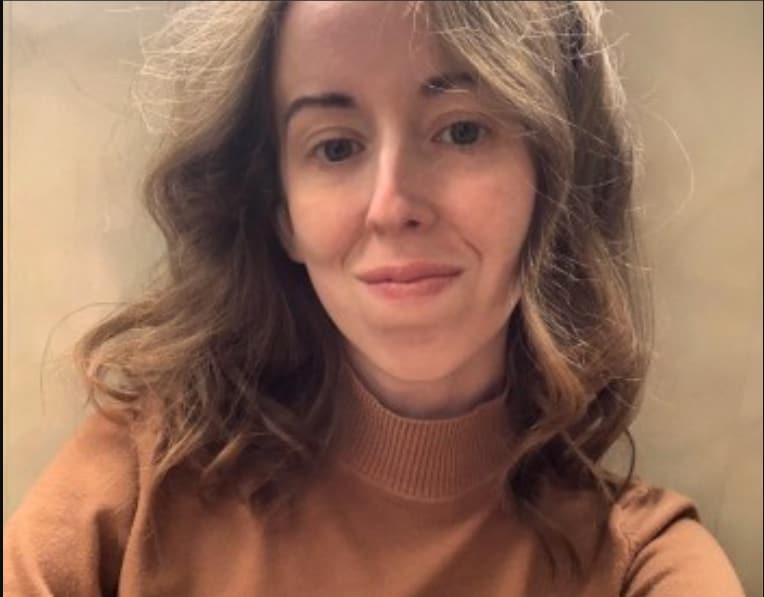
Kate Tsurkan is an American writer, editor, and translator who has been living in Ukraine for a number of years. What began as a volunteer experience in Chernivtsi (a town in Western Ukraine, close to the Romanian border) turned into a strong connection to Ukraine - its people, its culture, and its literature.
“Chernivtsi has become such an important part of my life for the past two and a half years that I can’t imagine living anywhere else,” she told H-Ukraine in a “Spotlight” interview in 2020.
A graduate student at New York University, Tsurkan speaks English, French, Ukrainian, and Russian. In 2017, she co-founded Apofenie, an online platform that publishes translations from Central and Eastern European literature.
As the war in Ukraine broke out, Tsurkan focused on amplifying the voices of Ukrainian writers and journalists, spotlighting important local news on her Twitter account.
Katrin Eigendorf, International Reporter for German TV ZDF

Veteran reporter Katrin Eigendorf studied journalism in Dortmund and in Paris at the Institut Français de Presse (IFP). She has been a foreign correspondent since the 1990s, reporting extensively on the former Soviet Union and the Chechen war. In the last two decades, she established herself as a foreign policy reporter with a focus on the Middle East, Russia, and the Caucasus.
Born in Germany, Eigendorf speaks German, English, French, and Russian. In 2021, she received the Hanns-Joachim-Friedrichs-Prize for her film Return of the Taliban. She was also named “Journalist of the Year 2021” by “Medium Magazine for Journalists”.
"She gives a voice to those who are otherwise not heard, looks where others look away, makes complex problems understandable - in short, she has everything an extraordinary reporter needs.” said the jury about her long-term coverage of the situation in Afghanistan.
Katrin Eigendorf has been reporting live on the war in Ukraine from Vinnytsia, a town in the west-central part of the country, 200km from Kyiv.
Follow Katrin Eigendorf’s updates on Twitter.
Edit March 3rd: Following the publication of this article, we received a big response from our elleXX community, sharing with us more inspiring female journalists covering the war.
Below is our addition. Follow their stories and minute-by-minute updates:
Nika MelkoZerova, Executive editor of New Voice Ukraine: https://twitter.com/NikaMelkozerova
Sabrina Travenise, National Correspondent for the New York Times: The Battle for Kyiv podcast
Olga Rudenko, Chief Editor of Kyiv Independent: https://twitter.com/olya_rudenko
Anastasiia Lapatina, Journalist with Kyiv Independent: https://twitter.com/lapatina_
Anna Myroniuk, Journalist, Co-founder of the Kyiv Independent: https://twitter.com/AnnaMyroniuk
Polina Ivanovna, FT Correspondent for Russia and Ukraine: https://twitter.com/polinaivanovva
This list is being updated.
